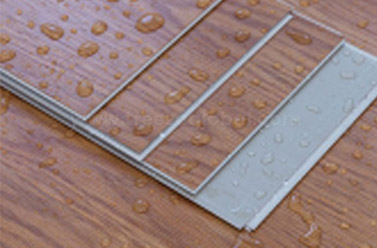+86 18553832636
Oct. 26, 2021
SPC flooring, WPC flooring, and LVT are three popular types of flooring. Here we will compare each type in-depth to help you determine which type best suits your needs. For many years, traditional LVT has been a popular flooring choice. As consumers continue to demand affordable, waterproof, and aesthetically pleasing flooring solutions, a number of advanced flooring options - such as hardcore vinyl-like WPC or SPC - are hitting the market.
When comparing traditional LVT with options such as SPC or WPC vinyl, there are several key similarities and differences to consider. To understand in detail the differences between these flooring options, it is important to first understand what each type is.
Water-Proof SPC Flooring
LVT (Luxury Vinyl Tile) is an innovative upgrade to vinyl flooring. Its realistic design mimics the look of solid wood, ceramic, or stone flooring while being affordable. This increasingly popular option is also hard-wearing, scratch-resistant, and water-resistant, making it a top contender for any room in a home or commercial space. LVT flooring consists of multiple thin layers for flexibility, durability, and low maintenance.
SPC (Stone Plastic Composite) flooring is an upgraded version of LVT. It is also sometimes referred to as RVP or Rigid Vinyl Plank. SPC flooring is made up of multiple layers: UV coating, wear layer, SPC print layer, SPC core, and a balance layer. The backing may vary due to the wide range of options available, including EVA, cork, and IXPE foam. It has high peel strength, low walking noise, no deformation, no warping, thermal and acoustic insulation, and no harmful emissions. It is also environmentally friendly and completely waterproof.
SPC Flooring
The core of WPC (wood plastic composite) is usually made up of PVC, a foaming agent, calcium carbonate, wood or actual wood material (e.g. wood flour), and a plasticizer. Originally named after the wood material it is made from, WPC flooring is becoming an increasingly popular alternative to various wood materials with wood plasticizers.
Let's take a look at the similarities and differences between WPC, SPC, and LVT vinyl flooring.
WPC and SPC vinyl floors are produced using the latest digital imaging technology, giving them a realistic look that mimics the look and feel of stone tiles and solid wood. both WPC and SPC vinyl can be found in a variety of textures, colors, and styles. Due to their thin panel construction, traditional LVT flooring tends to have the desired look and feel of vinyl. This is particularly true of the budget LVT option.

Water-Proof SPC Flooring
Traditional LVT flooring is soft and flexible and can easily be dented by heavy furniture. Due to its rigid core structure, WPC vinyl is less likely to dent. However, it is still a softer floor and is not completely immune to the threat of dents. SPC vinyl is mainly composed of stone and has excellent dent resistance compared to LVT and WPC vinyl. This makes SPC vinyl a top contender for commercial applications or high-traffic areas.
As with most vinyl flooring, WPC and SPC vinyl can be installed above and on the ground. They can also be installed in wet areas, such as bathrooms and kitchens, as well as commercial spaces. In general, WPC flooring is more suitable for residential areas, while SPC vinyl is ideal for commercial applications.
Due to its rigid core construction, WPC flooring has the advantage of hiding subfloor defects. Whereas traditional solid locking LVT or glued LVT may transfer any unevenness from the subfloor to the surface, WPC can be used to cover cracks or dents in wooden or concrete subfloors.
If you want to get more information about the best water-proof SPC flooring, welcome to contact us today or request a quote.
Previous: Advantages And Disadvantages of SPC Flooring
Next: How Is Plywood Made?
Navigation
Tel.: +86 18553832636
Fax: +86 571 8858 5176
E-mail: info@treezogroup.com
WhatsApp: +1 6048308096
wechat: +86 18553832636
SUBSCRIBE
Get the latest news from TREEZO GROUP
